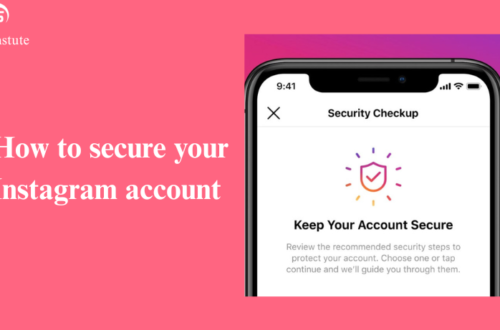So, you’re about to transfer money or pay bills online sounds simple, right? But wait, have you ever paused and wondered, “Am I doing this safely?” In a world buzzing with cyber threats and digital tricksters, figuring out how to secure your online banking transactions securely isn’t just a good idea, it’s non-negotiable. Whether you’re a tech whiz or someone who still calls the bank for everything, there’s a lot you can do to keep your finances under lock and key. Ready to level up your e-banking game? Let’s dive in.
How to Secure Your Online Banking Transactions Securely in Simple Steps
Before you panic and uninstall your bank’s app, know this: protecting your e-banking isn’t rocket science. With just a few mindful steps, you can ward off 90% of common attacks.
Here’s how to start:
- Enable two-factor authentication (2FA) – because one password just doesn’t cut it anymore.
Always log out when you’re done even if it’s just a “quick check.” - Avoid public Wi-Fi like the plague for any banking activity.
- Update your banking app and OS regularly.
- Use strong, unique passwords. Think: “$B@nK$ecure2025!” not “123456.”
How to Secure Your Online Banking Transactions Securely Using Cyber Hygiene
Let’s talk about digital World. Yes, that’s a thing! Keeping your devices and behaviors tidy can go a long way.
Top habits for cyber-safe banking:
- Keep antivirus software up-to-date.
- Don’t click on shady links if it looks fishy, it probably is.
- Monitor your bank statements often for unusual transactions.
- Use biometric logins if available (face ID, fingerprint, etc.).
- Beware of shoulder surfers yep, they’re real!
How to Safely Do Online Transactions?
You wouldn’t hand over your debit card to a stranger, right? So why treat your digital access any differently?
Here’s what you need to do:
- Only use your bank’s official website or mobile app.
- Confirm site security look for “https://” in the URL.
- Avoid doing transactions on shared or public computers.
- Set up instant alerts for all transactions to stay in the loop.
- Don’t store your banking credentials on your browser.
How to Be Safe When Online Banking?
Being cautious doesn’t mean being paranoid, it means being prepared. Whether you’re checking your balance or wiring large amounts, stay alert.
Quick tips to keep your digital vault secure:
- Avoid saving passwords on browsers. Try password managers instead.
- Always verify suspicious messages or calls claiming to be your bank.
- Trust your gut if something feels off, stop and double-check.
- Limit mobile banking access on devices you don’t use regularly.
List Some Safe Online Banking Tips
Sure thing! Here’s a checklist of straightforward tips you can print, pin, or keep in your phone notes.
Safe Online Banking Tips:
- Turn on SMS/email transaction alerts.
- Clear your browser cache and history often.
- Use virtual keyboards (if available) to thwart keyloggers.
- Don’t overshare on social media, no need to reveal your banking habits.
- Always lock your device when not in use.
What Is the Best Security for Online Banking?
Now, that’s the million-dollar question. Truth is, no single tool or feature is enough. The best security is a combo of a digital fortress built on layers.
Top-tier protections include:
- Hardware security tokens for an extra login layer.
- End-to-end encrypted communication between your device and the bank.
- Biometric verification and location-based access rules.
- Behavioral analytics (used by banks to spot unusual activity).
- Regular software and firmware updates.
What Are Some Cybersecurity Tools to Protect E-Banking?
So, what tools can turn you into a cyber-savvy online banker? Here’s your toolbox:
Must-Have Cybersecurity Tools:
- Password managers (e.g., LastPass, Bitwarden)
- Antivirus programs (e.g., Norton, Kaspersky, Bitdefender)
- VPN services (e.g., NordVPN, ExpressVPN) for encrypted connections
- Anti-malware tools (e.g., Malwarebytes)
- Secure browsers like Brave or Firefox with enhanced privacy modes
FAQ:
Q1: Is it safe to do online banking from your phone?
Yes if you take precautions. Always use your bank’s official app, update your software, and avoid using public Wi-Fi.
Q2: What if someone hacks my bank account?
Contact your bank immediately, report the fraud, and change your passwords. Most banks have protocols to protect and reimburse you in verified cases.
Q3: Are password managers safe?
They’re much safer than using the same password everywhere or writing them down. Just make sure to secure your master password.
Q4: How often should I check my online bank account?
Ideally, every few days. Early detection of unauthorized activity can prevent bigger issues.
Conclusion:
Well, there you have it the full rundown on how to secure your online banking transactions securely without losing your mind or breaking a sweat. From strong passwords to smart behaviors, every little effort counts. Remember, hackers are like burglars; they’ll always go for the easiest target. Don’t make it easy for them. Stay sharp, stay safe, and keep your money exactly where it belongs: in your hands.






